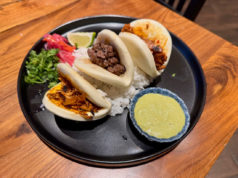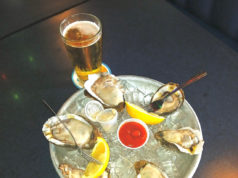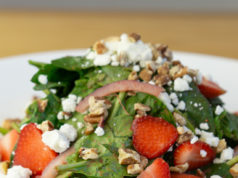Girls run the world, according to Beyonce, but women don’t necessarily run the restaurant industry. While about 65% of all hospitality staff are women, women own only about 46% of all restaurants. The number of minority women owners is infinitely smaller. For National Women’s History Month, we’re celebrating a growing group of local women restaurateurs who have managed to make their enterprises thrive, often balancing the intense pressure of 60-70-hour work weeks while raising young families.
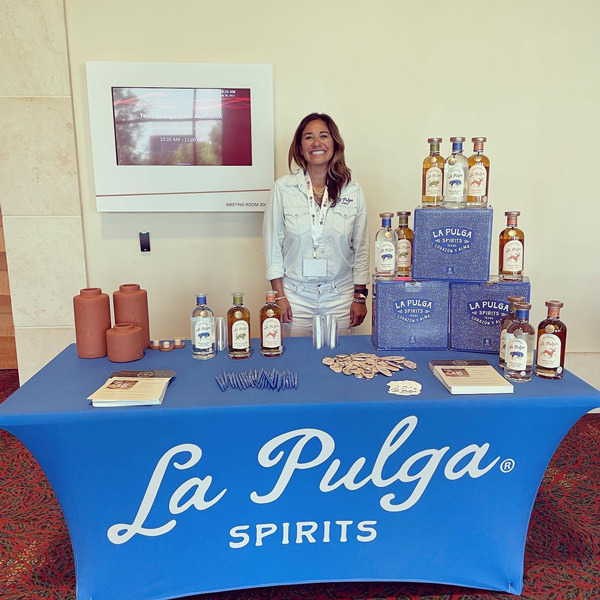
“Fort Worth is a special place to own a business,” said Sarah Castillo.
In 2010, when she was creating Taco Heads, Castillo said that other restaurateurs and even the county health inspectors were trying to help make her culinary dreams better.
Castillo is the youngest of the restaurateurs I spoke with. Her food truck is now a restaurant with two locations. She’s currently a partner in and co-founder of three additional enterprises: Tinie’s Mexican Cuisine (125 S Main St, 682-255-5425), Sidesaddle Saloon (125 E Exchange Av, Ste 240, 817-862-7952), and La Pulga Tequila, which is distilled and bottled in Mexico. Ironically, Castillo, who was born and raised in Fort Worth, didn’t see a future for herself here 14 years ago. The University of Texas grad was working as a server and contemplating a move back to Austin when she saw potential in turning her tasty breakfast tacos into a business. But first, she needed to learn how to back up a trailer.
“I had to learn how to run a business and drive a food truck,” she said. “I was scrimping and saving and building the truck one piece of equipment at a time.”
Her advice to anyone trying to start a restaurant: Be patient, be open to feedback, and “know what you’re working towards.”
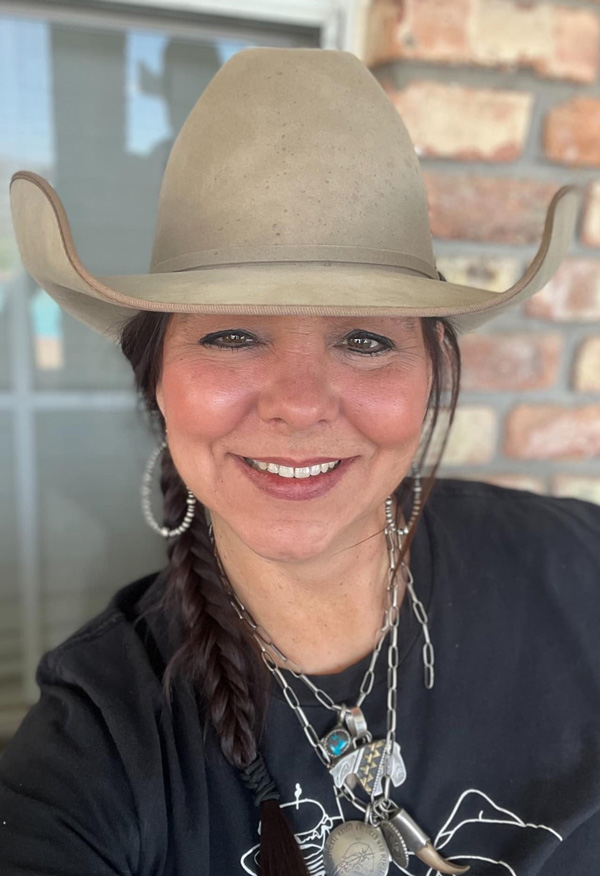
Ruth Hooker opened Hooker’s Grill (213 W Exchange Av, 817-378-0873) in the Stockyards seven years ago and honors her family and her Choctaw heritage with what she calls “simple everyday conversations.” Hooker said food is a gateway to those discussions and to education. The native Oklahoman started out making old-school hamburgers –– the good kind, made fresh, loaded with grilled onions and mustard if you want. She also introduced Indian fry bread in both savory form as an Indian taco and sweet with a traditional berry sauce. Hooker also serves what she calls a Rez Dog in the fried bread as well. As an indigenous woman in a part of town full of real and wannabe cowboys, Hooker says her restaurant is a destination and not just a tourist spot.
“The [east] end of the Stockyards is more touristy,” she said. “On the west end, we know most of our customers by their orders. We’re not surviving off the tourists.”
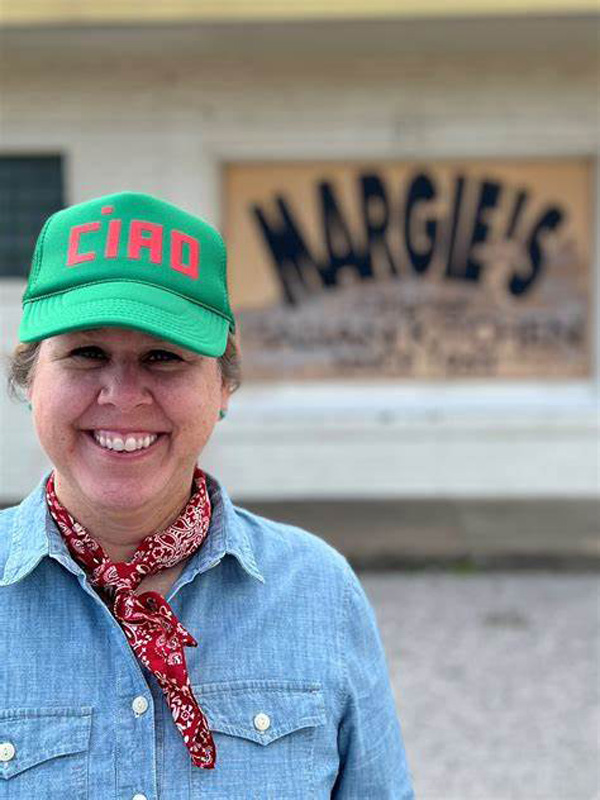
Gigi Howell has spent 35 years in the restaurant business, and, over the decades, she’s discovered that relationship-building is critical. Howell owns Westland Restaurant Group with partner Bourke Harvey. The first restaurant they built was JD’s Hamburgers (9901 Camp Bowie West, JDsHamburgers.com). The two are tied to the area by family memories.
“My mom worked for Bourke for almost 30 years,” Howell said. “Three generations of my family lived on the street where JD’s is now.”
JD’s, named for her grandfather, is technically in the town of Westland, a small community that took a beating last century when I-30 replaced Hwy 80 as the main thoroughfare. Howell envisioned a family-friendly, “really good burger joint” in Westland, a restaurant desert. “Timing and location play such an important part.”
When it came down to buying the building, the constraints of the size forced some critical thinking. The kitchen is built into a shipping container a couple of steps outside.
Along with JD’s Burgers, Westland Restaurant Group also owns West Side Café (7950 Camp Bowie West, 817-560-1996), where, Howell said, they “haven’t changed a thing” about the menu. Westland is also revamping Margie’s Original Italian Kitchen (9805 Camp Bowie West, 817-244-4301), which is essentially across the road from JD’s Burgers. It’s all a labor of love.
“I grew up there,” Howell said of Margie’s. “My mom worked there, and I used to fall asleep in the booths.”
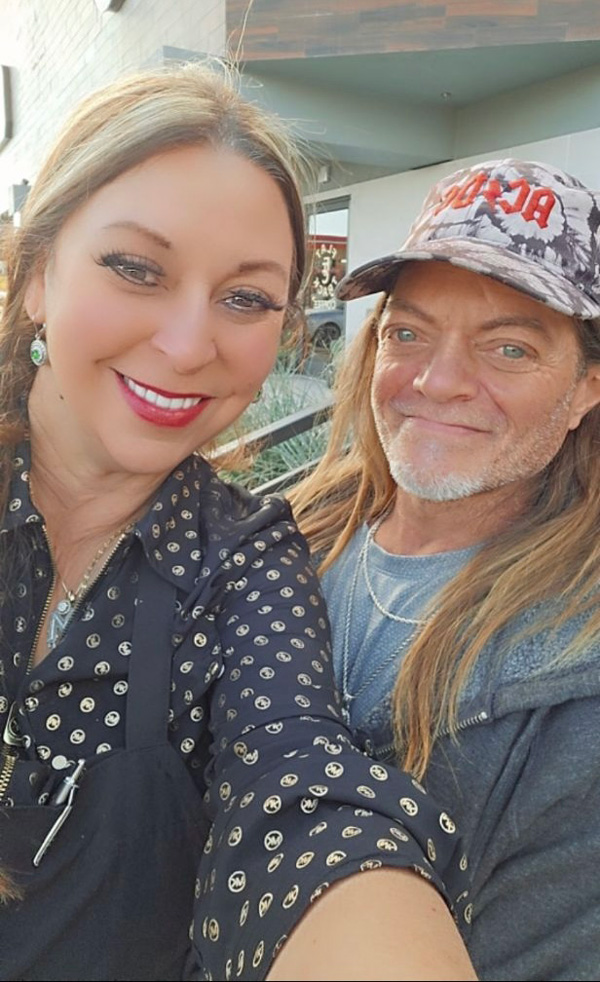
Mary Perez knows how precious work-life balance is. In December, she opened her third Enchiladas Ole location, this one on the West Side (6473 Camp Bowie Blvd, 817-386-4555), in addition to her restaurants on North Tarrant Parkway and Forest Park Boulevard. While Perez attributes her success to her work ethic –– sometimes restaurants are 80-hour-a-week gigs –– the fact that her kids were high school-aged at the time she opened her first location 11 years ago was a critical factor.
“You’re married to these restaurants,” she said. “It takes a lot for a mom to try to raise a kid and a restaurant.”
Perez started out in food by selling her family-recipe salsa and enchilada sauces at Central Market while working at John Peter Smith Hospital. In 2013, armed with only her savings, her sons, and six employees, she opened the first Enchiladas Ole on Sylvania Avenue. Perez said that one of the functions of her small chain is to lift up people who can’t get a job, like the man in the photo, Mike, who was formerly homeless.
“The locally owned restaurants are the ones hiring kids with no high school diplomas and even some offenders,” she said. “Everyone needs an opportunity.”
Perez also cites her continued determination to network and seek out mentors for her success. To that end, she said, locally owned restaurants can’t consider other small businesses their competition, especially in a friendly town like Fort Worth.
“We’re not in competition with each other,” she said. “We’re competing for those chain-restaurant dollars.”

For as long as I’ve been writing about food, Dena Peterson Shaskan has been a culinary force in Fort Worth. Shaskan left Café Modern to open a catering company, a move intended to improve her work-life balance.
“I joke that I left the Modern because I was tired of earning a regular paycheck,” she said, “but I was working so much, I didn’t get to see the kids grow up.”
Her daughter was 3 when she left, and her stepchildren were still at home.
Unfortunately, COVID closed the catering company that Shaskan says “specialized in weddings and small functions, and that went away overnight.”
When you own your own business, you work triple time, as Shaskan found out. Her 3rd Street Market closed just this month, after a relatively successful 16 months. Shaskan said she and her husband were exhausted from working six days a week across several enterprises.
The couple has retained Wines from a Broad (317 Houston St, 682-224-0056), where the focus is on labels made solely by women or by wineries with a woman owner, president, or leader “with her hands in the grapes in a meaningful way,” Shaskan said. Walk into the wine bar/shop to buy a bottle and enjoy a taste or a glass. “It’s easy to lift up women in male-dominated careers, so why not do it?” Shaskan said.
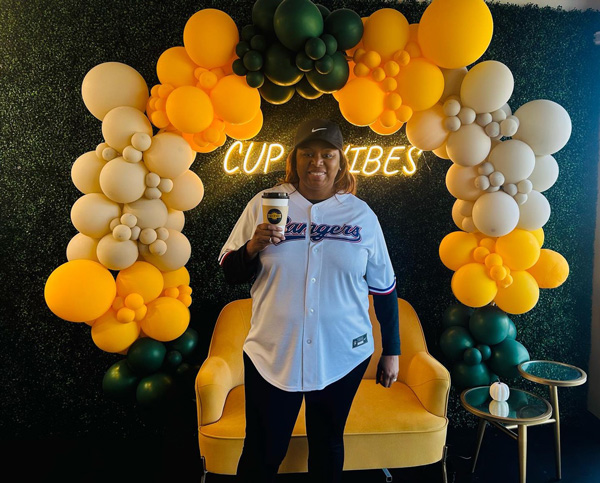
Charletra Sharp envisioned her Cup O’Vibes (800 E Sublett Rd, Arlington, 817-706-1481) as a “third space” –– in social theory, it’s the place between home and work, where people can meet and exchange ideas in a nurturing environment. Sharp’s vison was honed in the aftermath of COVID, when people were still trying to work from home and definitely feeling disconnected. She saw a vision of “atmosphere and opportunity,” and Cup O’Vibes celebrated one year of “Brewing Community, Serving Culture” last October. The shop’s location has been a beacon to other small businesses, and another restaurant joined Cup O’Vibes and an African grocery store last year.
Sharp is one of those people who’s embedded into a community and is a connector, and, like Mary Perez, she sought out other entrepreneurs and learned from their experiences. Because her background is in contract compliance, she knew what needed to be in a business plan.
Sharp also has a young family and says that quitting her job to run a coffee shop that was open every day was not an option. She’s thriving because she’s a planner but realized quickly that “not all plans will go as planned.”
Her advice? “Be intentional about communication and prioritize your support system.”
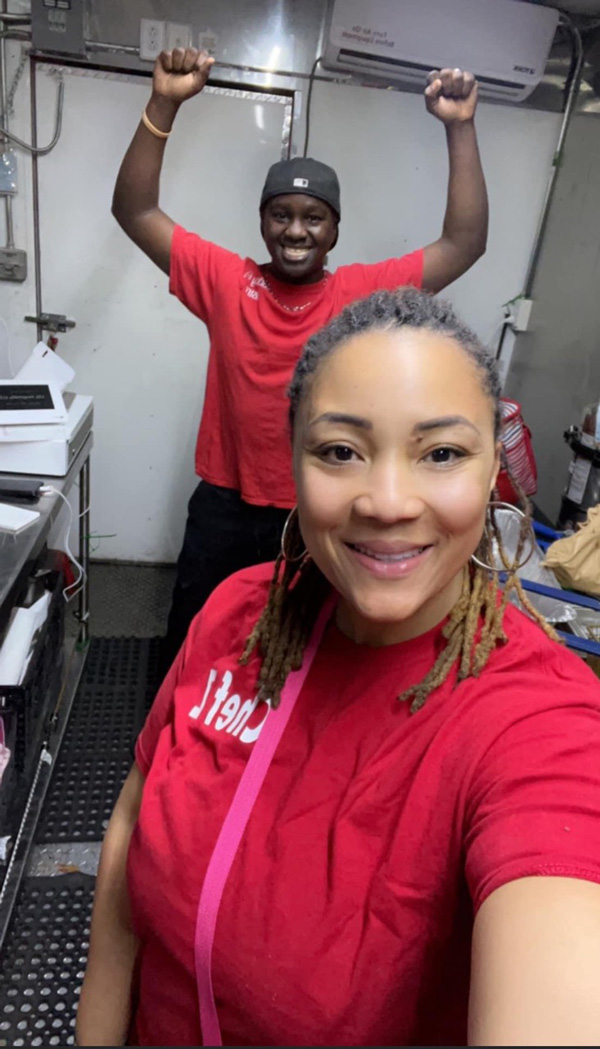
Like Sharp, Zameika Williams, owner of Luckey G’s Gourmet Bistro (LuckeyGsLegacy@gmail.com, 817-296-7961), couldn’t afford to quit her day job, and good thing, too. She was Chef Instructor of the Year in 2023 at Crowley ISD, and her lessons in culinary arts are peppered with real-world advice for her students.
Williams grew up in a family that owned restaurants in San Antonio, and her food truck’s specialty grilled cheese items are named for family members. Her advice to her students is to always be on their game –– be prompt, execute well, and get the work done because “you never know who’s watching you.”
Williams pays it forward by hiring the best and brightest of her culinary students for summer work at her food truck because, like Perez, she believes everyone needs an opportunity.
I asked all these women restaurateurs whether it was hard to be a woman in a male-dominated field. Ruth Hooker said, “It’s hard to be in the restaurant business, period –– whether you’re a man or a woman.” Gigi Howell chimed in that she’s had male and female mentors but that she’s never been “treated differently” because she’s a woman.
I also asked them whether it was hard for them to acquire loans to start their businesses. Dena Shaskan and Mary Perez used their own money for capital — Shaskan said she leveraged her retirement account from Café Modern to start her catering company.
Sarah Castillo laughed at the question: “Loans are for people who have money,” she said, and she’s not wrong.
Charletra Sharp employed Community Development Financial Institutions Funding –– essentially subsidized dollars to help local businesses in underserved areas. But even though she has a background in compliance and was familiar with underwriting, it still took a year for her application to be finalized. Mary Perez applied her own funds for the first three Enchiladas Ole restaurants, but she said “for the fourth and fifth, we’re going to use Small Business Administration funding.” The SBA both provides monies through an application and helps small businesses find investors.
Howell philosophically summed up what most of the women said.
“Restaurants are a physical investment,” she said. “Be certain you’re doing what you’re passionate about and surround yourself with wonderful people.”
Read about eight outstanding women involved with next month’s annual FWF+WF celebration in Ate Day8 a Week.




